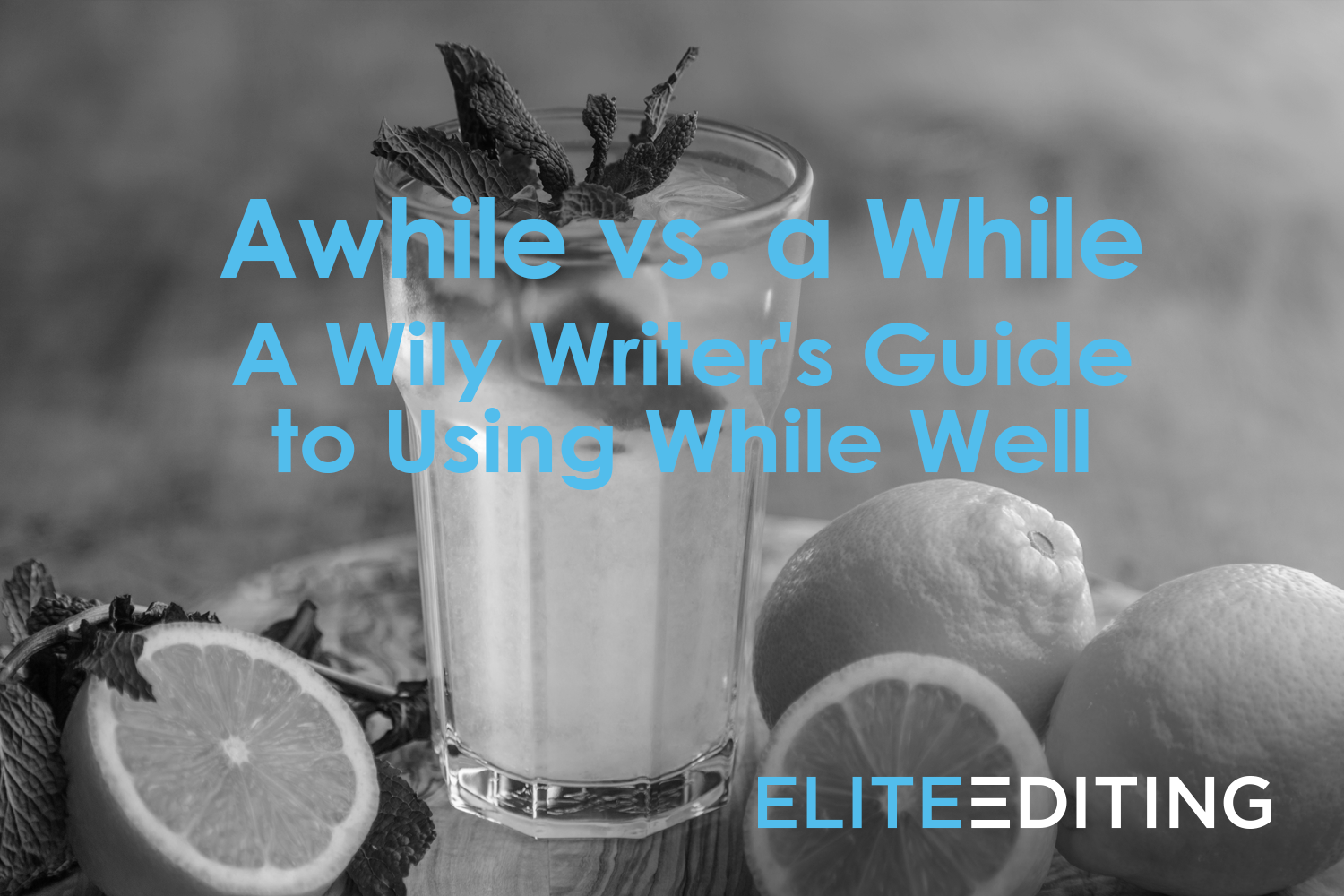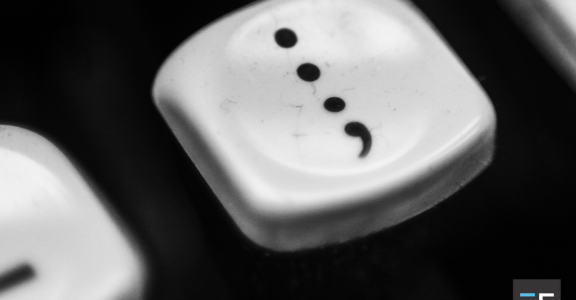
Once in a while, I like to sit awhile on my front porch, whiling away a free hour or two while drinking some lemonade.
That sentence right there pretty much illustrates exactly how to use awhile vs. a while. But don’t fear! If you have a moment or two to while away, stay awhile with me while I explain exactly when and how to use a while vs. awhile.
Awhile vs. a while: Awhile is always an adverb that means for a short time.
The only time you ever need the word awhile is when you need a single adverb that means for a while. That’s actually an excellent test for whether awhile is correct. Can you replace it with for a while? If the answer is yes, then awhile is correct. Otherwise, you want a while—that is, indefinite article a plus noun while.
Try it yourself! Here’s a quick awhile vs. a while quiz.
- Once in awhile / a while
- Rest for awhile / a while.
- I spent awhile/ a while wondering whether I’d chosen the right word.
- Sit awhile / a while with me.
Check your answers below!
While can be a noun.
While can be a noun that means a period of time. If you’re ever nervous about whether you’re using it correctly, try substituting another time word, such as week or minute or even year.
I’ll come down in a while.
Jefferson worked in his library for a long while before emerging with a draft of the Declaration of Independence.
I got that bike a while ago.
For a while, he really thought Amber loved him.
Do you see how all of these still work (at least grammatically) when while is replaced with minute? That’s because while is being used here as a noun.
Once in a while
The idiomatic phrase once in a while (or its variation, every once in a while) uses while as a noun—it’s the object of the proposition in. It means something like from time to time or intermittently.
While can be a subordinating conjunction.
As a conjunction, while can mean during the time in which or at the same time as.
While you were drinking chilled sangria, I was mowing the lawn and weeding the garden.
While the cat’s away, the mice will play.
I’ll cook dinner while you finish your homework. Then we can watch a movie together.
It can also mean something like although.
While I loved the original Star Wars trilogy, I’m not thrilled with the newer films.
While Naomi is never likely to confront her boss, she hates how he treats her.
While can be a verb.
If you’re a fan of The Wizard of Oz (and you should be), sing it along with me!
I could while away the hours
Conferrin’ with the flowers
Consulting with the rain.
In his lovely song “If I Only Had a Brain,” Scarecrow uses while as a verb. To while away the hours means to spend time in a leisurely manner. It’s not the most common use of the word while, but it might come in handy when you’re describing someone lounging in a hammock on a hot summer’s day. That’s definitely where someone might choose to while away a sunny afternoon.
Awhile vs. a while: Awhile is always an adverb that means for a time.
Wait, am I repeating myself? Why, yes! Yes I am. And that’s okay because it bears repeating. Awhile has only one function—to be an adverb that means for a period of time. And since you can always use for a while in place of awhile, you actually never need to use awhile.
In fact, you can have a long, rich, and fulfilling writing life without ever using awhile. We’d argue that awhile has a folksy feel, so it will rarely (if ever) be appropriate in formal writing of any kind, and you don’t need it in your fiction—unless that aw shucks, Mark Twain style is what you’re going for. If that’s the case, well, you just sit yourself down and write awhile.
Quick quiz answers
- A while. Once in for a while? Nope.
- A while. Rest for for a while? Nope.
- A while. I spent for a while wondering whether I’d chosen the right word? Nope.
- Awhile. Sit for a while with me? Yep.






